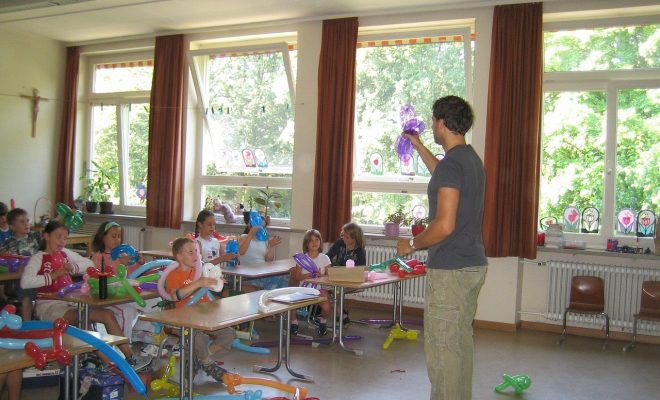Teacher Certification Reciprocity in Each U.S. State

Teacher license reciprocity allows teachers who possess an out-of-state license to receive a license in another state as long as they meet the state’s requirements. Reciprocity agreements allow states to work through differences in licensing systems to manage license transfers and staff vacant teaching positions with qualified applicants. Most states have policies to improve reciprocity for specific teachers, but few states provide full reciprocity for all fully licensed teachers.
In this article, we will provide an overview of the basic requirements for teacher reciprocity in each state, district, and territory in the United States.
Alabama
- Undergraduate degree obtained from an accredited university and approved teacher education or preparation program.
- Praxis Subject Exams or comparable assessment; maybe put aside if an applicant has 3 years of professional teaching experience.
- Emergency Certificate if the applicant meets all requirements except testing
- Out-of-state teaching license must be comparable to an Alabama Professional Educator Certificate to qualify for teacher reciprocity.
Alaska
- Undergraduate degree obtained from an accredited university and approved teacher education or preparation program.
- Basic Competency Exam.
- Non-renewable one-year Tier I Initial Certificate is given if the applicant meets state requirements.
- Must pass Praxis Subject Exams to earn a Professional renewable certificate. Must take a sanctioned course in Alaska Studies and Multicultural/Cross-Cultural Communication.
Arizona
- Undergraduate degree obtained from an accredited university and approved teacher education or preparation program.
- Professional and Subject Knowledge assessments – See the Arizona Department of Education for accepted assessments. May be put aside with 3 years of full-time teaching experience.
- Reciprocity applicants are given a non-renewable 3-Year Reciprocal Provisional Teaching Certificate, which converts to a 6-Year certificate after two years of teaching in Arizona and meeting requirements.
- Applicants must take sanctioned courses in the Arizona and U.S. Constitutions or pass an equivalency assessment to upgrade to a standard teaching certificate.
Arkansas
- Undergraduate degree obtained from an accredited university and approved teacher education or preparation program.
- Testing for the certificate held. The state will waive three years of teaching experience or comparable certification from the National Board for Professional Teaching Standards.
- Provisional license for reciprocal teacher certification is given to applicants who meet all requirements.
California
- Undergraduate degree obtained from an accredited university and approved teacher education or preparation program.
- California’s Basic Skills assessment
- A preliminary certificate is given if all requirements except testing are met.
- Applicants with less than 2 years of experience must complete an approved teacher induction program.
Colorado
- Undergraduate degree obtained from an accredited university and approved teacher education or preparation program.
- PLACE or Praxis Subject Exams in select areas is needed; put aside with 3 years full-time teaching experience.
Connecticut
- Undergraduate degree from an accredited college or university and approved teacher education or preparation program. Teacher preparation put aside with 30 months of full-time experience.
- Praxis Core and Praxis Subject Exams in the content area are needed.
- Interim certificate if applicants meet all criteria except Praxis assessments.
Delaware
- Undergraduate degree from an accredited college or university
- Based on credentials evaluation. Praxis CORE or Praxis Subject Exams maybe is needed after review.
Florida
- Undergraduate degree from an accredited college or university.
- Comparable basic knowledge, content, and pedagogy assessments.
- Temporary certificate in the area of Undergraduate degree major if basic knowledge or pedagogy assessment requirements are not met.
- Teaching license must be comparable to Florida Professional Certificate.
Georgia
- Undergraduate degree obtained from an accredited university and approved teacher education or preparation program.
- Georgia Exams for the Certification of Educators is needed if less than 5 years experience or who have not passed a content assessment.
- Teaching license must be Professional or comparable, temporary or provisional, not accepted.
Hawaii
- Undergraduate degree obtained from an accredited university and approved teacher education or preparation program.
- 3 out of the last 5 years of full-time experience is needed for a Standard certificate based on a reciprocal teaching certification.
- Content knowledge assessment is needed if the applicant does not have an undergraduate degree in the endorsement area sought. Provisional certificate if requirements are not met.
- Content knowledge can also be put aside with NBPTS certification or a master’s degree.
Idaho
- Undergraduate degree obtained from an accredited university.
- Praxis Subject Exams are needed unless the applicant holds an undergraduate degree in the endorsement field.
- Interim licensure is given if testing or coursework requirements are not completed.
- Recommendation from an accredited preparation program is needed for any applicant with less than 2 years of full-time teaching experience.
Illinois
- Undergraduate degree obtained from an accredited university.
- Assessment of Academic Proficiency and content-area assessments is needed if comparable out-of-state assessments are passed.
- Provisional certificate if missing testing or state-specific courses.
- Must possess 32 hours of content area coursework and coursework in reading and ESL methods for Professional certificate.
Indiana
- Undergraduate degree obtained from an accredited university.
- Indiana CORE Exams and Developmental/Pedagogy assessments are needed.
- A one-year reciprocal teaching license is given if missing testing or coursework.
- Expired out-of-state teaching licenses are not accepted. All applicants must be certified in CPR/AED/Heimlich and suicide prevention for a professional certificate.
Iowa
- Undergraduate degree obtained from an accredited university and approved teacher education or preparation program.
- Praxis Subject Exams for each subject to be taught.
- One-year exchange license if coursework or testing requirements are not realized.
- Must pass human relations coursework for Initial certification.
- Must possess six university credits or educator experience in the previous five years.
Kansas
- Undergraduate degree obtained from an accredited university and teacher preparation program.
- Content and pedagogy assessments in Kansas or comparable assessments completed in another state.
- Teacher preparation program put aside for secondary teaching if the applicant has an offer for hire from a Kansas school.
Kentucky
- Undergraduate degree obtained from an accredited university and approved teacher education or preparation program.
- Praxis Subject Exams is needed if less than two years of teaching experience in the endorsement area.
- Reciprocity is not provided for out-of-state certificates based on testing.
Louisiana
- Undergraduate degree obtained from an accredited university and teacher preparation program.
- Louisiana Praxis and NTE assessments are needed for a Level 1 Professional Certificate, put aside with at least 3 years of experience in another state or one year of experience in Louisiana with superintendent recommendation.
- Three-year out-of-state license if testing requirements are not met.
- If the applicant has not taught in the previous five years, six-semester credits related to the endorsement area must be finished before a license can be given.
Maine
- Undergraduate degree from an accredited school.
- Praxis Core and Praxis Subject Exams are needed in each area of certification.
- The candidate should request credential evaluation before applying.
Maryland
- Undergraduate degree obtained from an accredited university and approved teacher education or preparation program.
- Must show a passing score on comparable content assessments taken in another state.
- Conditional certificate if the applicant has offered for hire from a Maryland school.
- Applicant must request credential evaluation before applying for reciprocal teacher certification.
Massachusetts
- Undergraduate degree obtained from an accredited university and approved teacher education or preparation program.
- Massachusetts Assessments for Educator Licensure (MTEL) is needed.
- Temporary or preliminary if applicant teaches a core subject but does not qualify for is needed Sheltered English Language (SEI) endorsement.
- Teacher preparation program put aside with three years of teaching experience under a valid certificate in another state.
Michigan
- Undergraduate degree obtained from an accredited university and approved teacher education or preparation program.
- Michigan Assessment for Teacher Certification (MTTC) maybe is needed based on credentials evaluation.
- Temporary Teacher Employment Authorization if testing parameters are not met. A provisional certificate is given after testing parameters are met.
- Must be a teacher for three years on a Provisional certificate to earn the Professional certificate.
Minnesota
- Undergraduate degree obtained from an accredited university and approved teacher education or preparation program.
- Minnesota Teacher Licensing Examinations (MTLE) are needed.
- Limited licensure if assessment or coursework requirements are not met.
Mississippi
- Undergraduate degree obtained from an accredited university and approved teacher education or preparation program.
- Core subject assessments such as Praxis Subject Exams passed for certification in issuing state.
- Two-year license if testing requirements are not met.
- Institutional Recommendation is needed for select endorsement areas.
Missouri
- Undergraduate degree obtained from an accredited university and teacher preparation program.
- Missouri converts out-of-state licenses to the closest in-state comparable under teacher reciprocity.
- Institutional Recommendation is needed if the out-of-state license has expired. Must have a college GPA of at least 2.75.
Montana
- Undergraduate degree obtained from an accredited university and sanctioned or NCATE/CAEP accredited teacher preparation program.
- Praxis Subject Exams are needed.
- University Recommendation from educator preparation program is needed for Standard license.
Nebraska
- Undergraduate degree obtained from an accredited university and teacher preparation program.
- Praxis Core and Praxis Subject Exams are needed.
- Temporary or licensure if coursework or testing requirements are not met.
- Coursework in Human Relations and Special Education is needed for a regular teaching certificate.
Nevada
- Undergraduate degree obtained from an accredited university and teacher preparation program.
- Praxis Core, Praxis PLT, and Praxis Subject Exams are needed. Candidate must also pass assessments in Nevada School Law and Nevada and U.S. Constitutions.
- All requests for reciprocity are based on assessment.
New Hampshire
- Undergraduate degree obtained from an accredited university and three years of experience out of last seven in an Interstate Certification Contract state.
- Praxis Core and Praxis Subject Exams are needed.
- Applicants who do not meet experience requirements or are not transferring from an Interstate Certification Contract state may qualify within alternative certification routes.
New Jersey
- Undergraduate degree obtained from an accredited university, sanctioned or NCATE/CAEP accredited teacher preparation program, and two years of “effective” rated experience within last three years.
- Praxis Subject Exams are needed.
- Only if a comparable temporary certificate is held in another state.
- Experience requirement put aside with NBPTS certification.
New Mexico
- Undergraduate degree obtained from an accredited university and approved teacher education or preparation program and at least one year of teaching experience.
- Must have passed teacher competency assessment in the jurisdiction where the current teaching license was issued.
- Approved program and testing requirements put aside with NBPTS licensure.
- License level for reciprocal teaching is calculated based on experience.
New York
- Undergraduate degree with 2.5 GPA or higher from an accredited college or university and teacher preparation program that meets N.Y. standards and three years of public school teaching experience in one state.
- Must pass New York’s edTPA, Educating All Students, Academic Literacy Skills, and Content Specialty assessments through NES. NBPTS certified teachers are exempt from assessment requirements.
- Conditional certificate if the applicant meets all requirements except edTPA assessment or workshops.
North Carolina
- Undergraduate degree obtained from an accredited university and approved teacher education or preparation program.
- Praxis Subject Exams are needed.
- Elementary and Exceptional Children endorsements contain North Carolina Foundations of Reading/General Curriculum assessments.
- Whether the applicant receives Standard Professional 1 or 2 depends on years of experience.
North Dakota
- Undergraduate degree with a minimum of a 2.50 GPA from an accredited college or university and approved teacher education or preparation program.
- Praxis Core and Praxis Subject Exams are needed.
- Interim certificate if coursework or assessment requirements are not met by the applicant.
Ohio
- Undergraduate degree obtained from an accredited university and approved teacher education or preparation program.
- Ohio Exams for Educators (OAE) or Praxis Subject Exams maybe is needed based on an evaluation.
- Resident educator license if the applicant has then 3 years of experience.
- Must possess at least 12 semester hours of reading for a standard license.
Oklahoma
- Undergraduate degree obtained from an accredited university and approved teacher education or preparation program.
- Oklahoma state teacher assessments or out-of-state comparables are needed.
- Verification of experience is needed.
Oregon
- Undergraduate degree obtained from an accredited university and approved teacher education or preparation program.
- Must have passed acceptable subject matter assessment or the Oregon Educator Licensure Exams (ORELA). Assessment of U.S. and Oregon civil rights laws and ethics also is needed.
- A reciprocal teaching license is temporary.
- The state of the first certificate must be a NASDTEC member.
Pennsylvania
- Undergraduate degree obtained from an accredited university and approved teacher education or preparation program.
- Acceptable basic skills, subject matter, and pedagogy Exams are needed.
- Must meet Pennsylvania’s qualifying scores for any assessment(s) taken.
- Teacher preparation program requirement put aside with 2 years of experience.
Rhode Island
- Undergraduate degree obtained from an accredited university and approved teacher education or preparation program.
- Praxis Core, Praxis PLT, and Praxis Subject Exams are needed for most subjects and grade levels.
- Successful applications for teaching reciprocity between states lead to a Temporary Initial Educator Certificate.
- License held must be NASDTEC Stage 3 or above.
South Carolina
- Undergraduate degree obtained from an accredited university and approved teacher education or preparation program.
- Praxis PLT and Praxis Subject Exams are needed.
- The teaching licensure issued depends on years of experience.
South Dakota
- Undergraduate degree obtained from an accredited university and teacher preparation program.
- Praxis Subject Exams are needed.
- One-year certificate if the applicant is missing coursework or testing requirements.
Tennessee
- Undergraduate degree obtained from an accredited university and approved teacher education or preparation program.
- Praxis Core, Praxis PLT, and Praxis Subject Exams are needed for most subjects and grade levels.
- The initial certificate issued is Practitioner Teacher.
Texas
- Undergraduate degree obtained from an accredited university and teacher preparation program.
- Texas Education Agency (TEA) or comparable assessments in another state is needed.
- One-year certificate if assessment requirements are not met.
- A credentials review is provided prior to application for a fee.
Utah
- Undergraduate degree obtained from an accredited university and NCATE/TEAC/CAEP accredited teacher preparation program.
- Praxis Subject Exams typically are needed, but comparable assessments may be evaluated.
- All successful applicants for reciprocity receive a Level 1 Utah Educator License.
- An educator ethics review also is needed.
- Applicants with less than 3 years of experience must participate in Early Years Enhancement.
Vermont
- Undergraduate degree obtained from an accredited university and teacher preparation program.
- Praxis Core and Praxis Subject Exams are needed.
- All successful applicants for reciprocity from NASDTEC states receive a Level 1 Professional Educator’s Certification.
Virginia
- Undergraduate degree obtained from an accredited university and approved teacher education or preparation program.
- Virginia Communication and Literacy Assessment, Praxis Subject Exams are needed.
- Praxis Series Reading for Virginia Educators is needed for select endorsements. Exams are put aside with 3 years of full-time teaching experience.
- Teacher preparation program requirements may be put aside with current and a valid teaching certificate from another state or NBPTS licensure.
- Child abuse intervention and emergency first aid training are needed.
Washington
- Undergraduate degree obtained from an accredited university and approved teacher education or preparation program.
- Washington Educator Skills Assessments (WEST) B and E or comparable assessments are taken in another state.
- Typically, approved reciprocal applicants receive a temporary residency certificate.
- Coursework in issues of abuse is needed to upgrade to a Professional certificate.
Washington DC
- Undergraduate degree from an accredited college or university and approved teacher education or preparation program. Teacher preparation put aside with 30 months of full-time experience.
- Comparable basic skills, content, and pedagogy assessments.
- Teaching license must be comparable to D.C.’s Level II.
West Virginia
- Undergraduate degree obtained from an accredited university and approved teacher education or preparation program.
- Praxis Core, Praxis PLT, and Praxis Subject Exams are is needed for most subjects and grade levels.
Wisconsin
- Undergraduate degree obtained from an accredited university and teacher preparation program.
- Praxis CORE in any state is needed. Praxis Subject Exams taken in Wisconsin are needed.
- Wisconsin Foundations of Reading Assessment (FORT) is needed for specific endorsements.
- Applicants must possess one year of licensed teaching experience. Assessments must be passed before applying for a license.
Wyoming
- Undergraduate degree obtained from an accredited university and teacher preparation program.
- Must have passed the educator assessments for the state in which a teaching certificate is currently held.
- Another state’s alternate route certifications can be reciprocated only if the applicant has taught in that area for 3 out of the previous 6 years.





